Covid in Wales: Staffing and surgery backlog the post-pandemic challenge
- Published
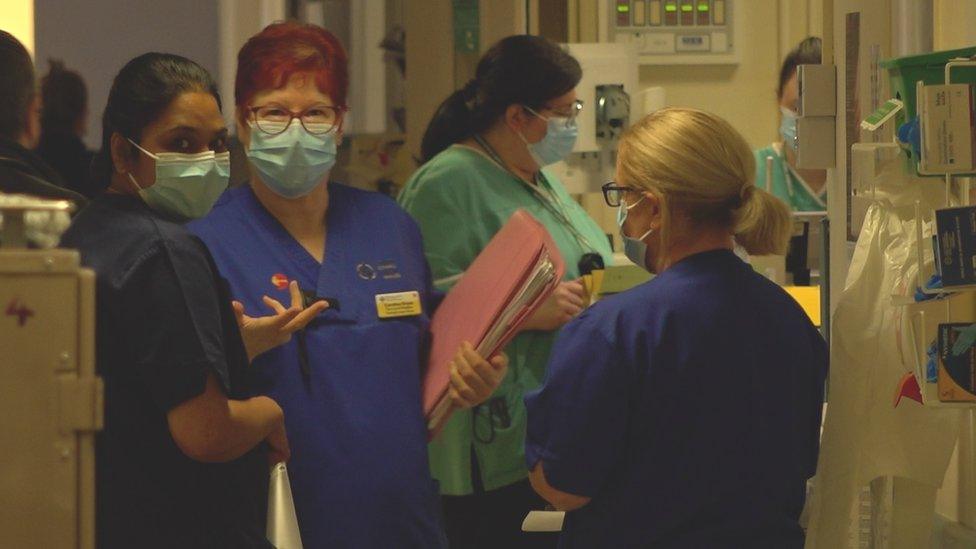
NHS Wales staff face new pressures from the pandemic
Replacing staff who left their jobs and delayed operations is the biggest challenge facing hospitals, according to NHS workers.
Wales is expected to see an end of all Covid restrictions on 28 March.
Exhausted frontline staff are proud of the way they responded to the pandemic.
But as "one of the worst challenges" of their careers comes to an end, NHS workers have said dealing with the backlog of patients presents another huge challenge.
Staff at Glangwili General Hospital in Carmarthen are gearing up for the next challenge.
"Things have changed a lot over the last year," said senior ward sister Catrin Rooney.
"With Omicron, yes we still had cases in the hospital but patients were coming in more for other reasons and happened to have Covid as well.
"We still had difficulties with infection control, but the patients weren't as sick as previously."
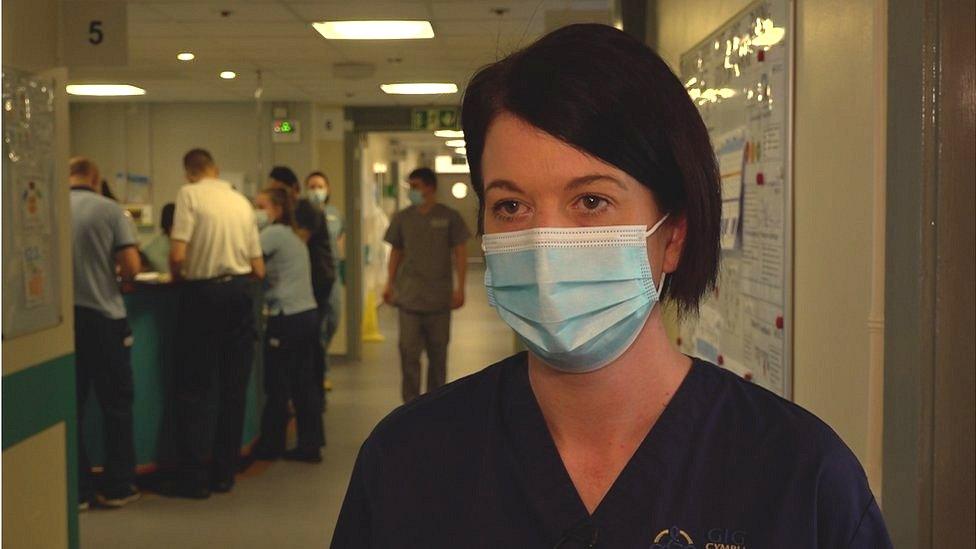
Staffing levels are a challenge says senior ward sister Catrin Rooney
The biggest challenge now is staffing levels, given how many medical staff left the profession during the pandemic.
"A lot of staff have left in the last year, which has had big impact on us.
"Patients still need to be cared for and we've still got staff going off sick with Covid," said Ms Rooney.
Staff are exhausted from their efforts over the past two years, but there is also pride in how they rose to the challenges they faced.
"Looking back, it probably was the hardest time of my career," said Ms Rooney.
"As difficult and as hard as it was, I'm also extremely proud of myself, proud of the team and proud of what we achieved and how we worked together for the sake of the patients."
The situation in hospitals such as Glangwili has clearly improved, with fewer patients becoming seriously ill with Covid.
Now the health service faces new challenges.
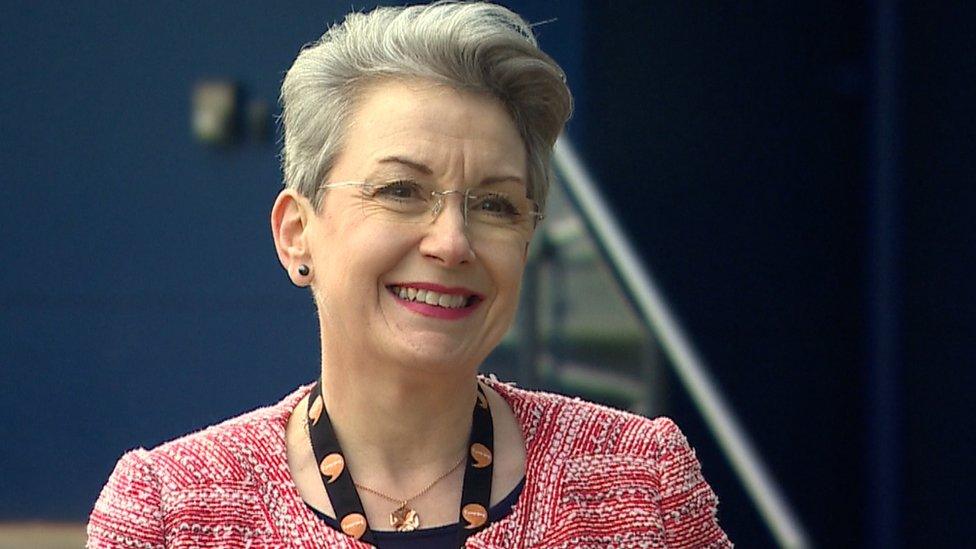
Nurses will be energised by seeing treatment return to normal, said head of nursing Olwen Morgan
Olwen Morgan, head of nursing at Glangwili and Prince Philip Hospital in Llanelli, said it will take years to catch up.
She said: "The challenges going forward are significant because we have a significant proportion of the population who have been waiting a long time for treatments and whose conditions have deteriorated in this time.
"Being able to facilitate that surgery and those treatments is going to take a significantly robust strategy both within our health board and across the country."
Ms Morgan said getting back to a form of normality within hospitals would help "very tired" medical staff.
"That feeling [tiredness] is going to be with us for some time but one of the best ways to recover from that and feel more energised is to see us beginning to treat patients who have been waiting a long time."
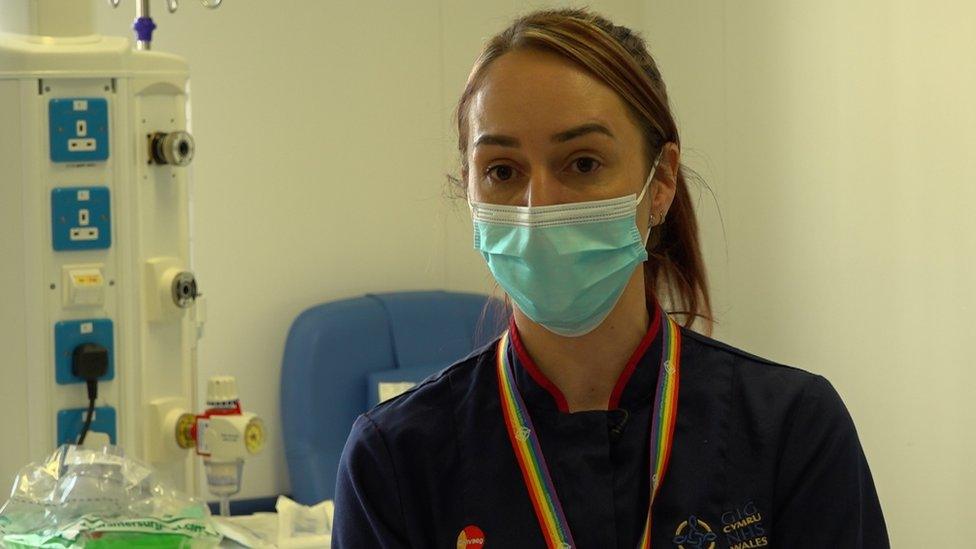
Meryl Jenkins says exhausted staff still need support
Senior nurse manager Meryl Jenkins insists exhausted staff will be ready for the challenges ahead, with the right support.
Staff welcomed working with a clinical psychologist, but more support is needed, she said.
"Yes, they are tired. Yes, they're exhausted mentally and physically, but you do have to keep going and the team is pushing forward," she said.
"But this is going to be a long-term process and potentially more support will be needed because we've got a very large team and they've seen and been through a really difficult time.
"It's going to be a long journey to get everybody back to where they were pre-Covid."
- Published4 January 2022
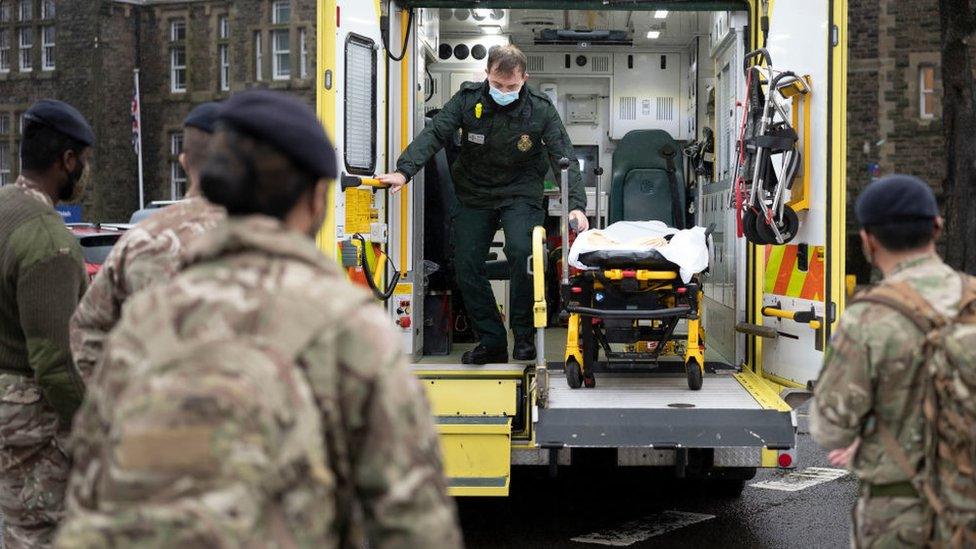
- Published29 January 2022
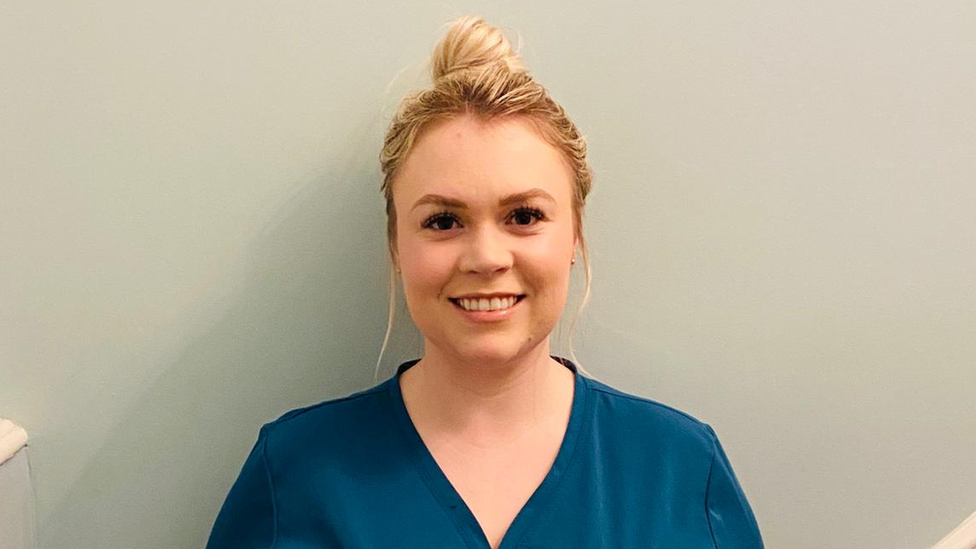
- Published24 February 2022

- Published15 February 2022
